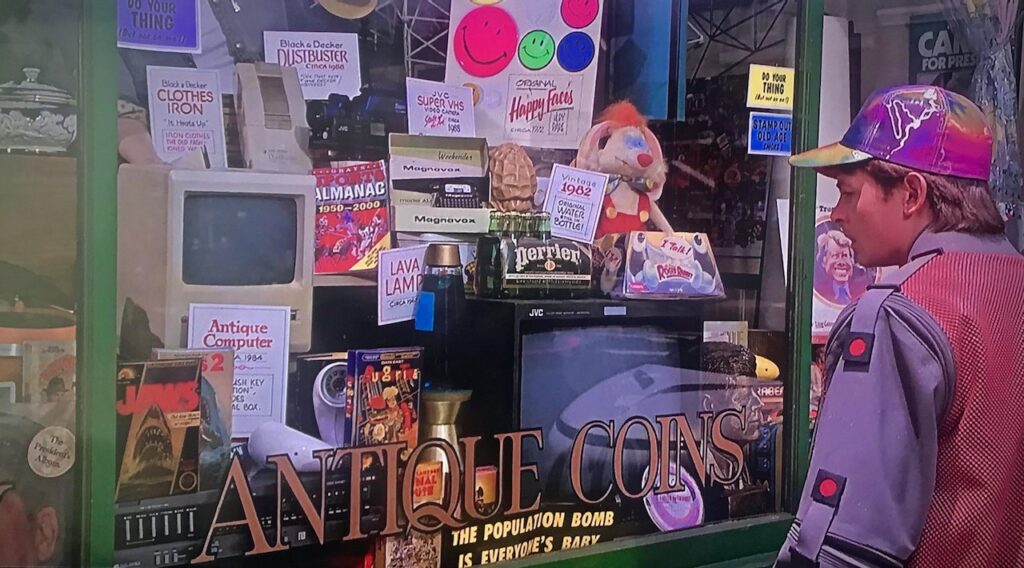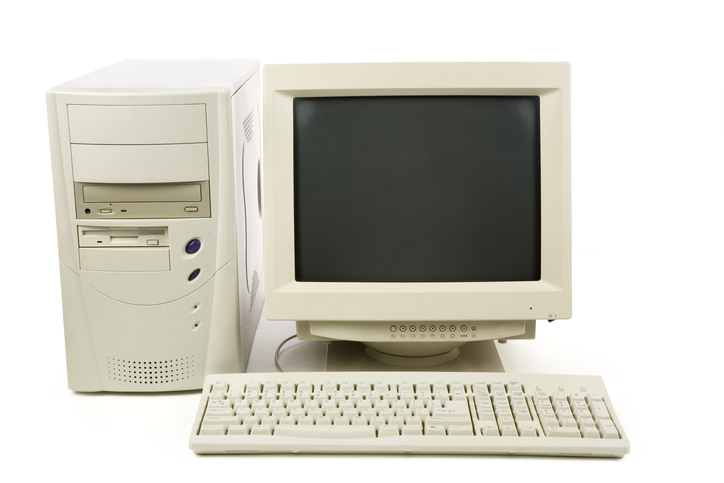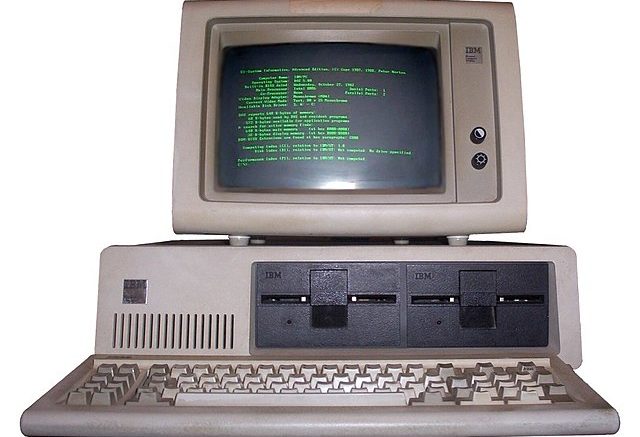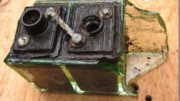In the 1989 film Back to the Future Part II, our hero travels to the “future” 2015 and looks in the window of an antique store. Here’s what he sees.

There among the other antiques is a 1984-era Macintosh. When this film was made, that computer was about four years old and still being used. Of course it’s played for a joke along with the VHS tapes, bottles of Perrier, and tube TV. But what if it isn’t a joke?
I’ve recently become aware that there’s a growing community of people who’ve taken an interest in 1980s and 1990s personal computers. I went down a Reddit rabbit hole the other day and I read one person saying,
I used to work in a place that recycled old PCs. If we only knew what we were throwing away!
I know exactly what they were throwing away
The original IBM PC was made largely from off-the-shelf parts. Once the basic input output system’s functions were reverse-engineered, it was incredibly easy to build computers that worked just like that IBM PC, or even worked better. Originally we called these “PC Clones,” but really they were just PCs. IBM may have started the PC revolution, but by 1995 they’d lost the game.
Your typical PC of the time was a big beige box like this one:

with most of its stuff attached via wires. As the 1990s wore on, these boxes got cheaper and cheaper, mostly due to poor quality components. This was a time that PCs were evolving quickly and most people struggled to keep up. Bought a PC in 1989? It probably didn’t have color or sound. Upgraded it in 1991? Chances are it wouldn’t run Windows 3.1, which everyone wanted. Upgraded again in 1993? Well you were probably out of luck not long after because Windows 95 came out. Thought you could get future-proof in 1995? Forget it. That PC you bought that year probably couldn’t get on the internet and it didn’t have a CD-ROM.
This was the rollercoaster ride we were all on at the time. And you know what? The end result was hundreds of thousands of obsolete beige boxes in landfills and recycling centers.
All of a sudden there’s renewed interest
As I said, it seems like all of a sudden, there’s a flurry of interest in old PCs. Vintage Computer Festivals are springing up all over the country. Social media has groups dedicated to vintage PCs. There are several YouTubers with hundreds of thousands of subscribers who do nothing but take apart old PCs and try to fix them.
I can’t account for this surge of interest in what are essentially useless pieces of junk. If they still work, or can be repaired, they still can’t do any of the basic things we rely on a computer for today. A computer from the 1990s can’t get online today, can’t run anything resembling modern software, and probably can’t even connect to today’s monitors and printers. It’s a curiosity, nothing more. If you search the internet you can find copies of old software to run, I suppose. But I suspect the fun of trying to boot into Windows 3.0 would probably fade once you remembered that it often took 10 minutes for these things to boot.
My guess is that it’s time for millennials to start craving the things from their youth. If you were born in the early 1980s, you grew up with one of these beige bad boys in a spare room of your house and at your school. It represents a time when things seemed simpler. Like all antiques, an old computer isn’t as good as something made today. But it’s a scarce reminder of a happier age.
Does this mean you should start hoarding your old electronics instead of recycling them?
That’s the question I posed at the beginning of the article. When you’re done with that old computer, should you box it up and store it? If you put it in a bank vault for 30 years, will it make you a billionaire at the end of it? Probably not unless you’re incredibly lucky. If you bought every one of the top children’s toys from when you were 11 years old and kept them new in box and stored them in a vault, you’d probably pay more for the vault than you’d ever get from selling them. But maybe, just maybe, in that pile of unsellable stuff would be a rare Pokemon card or the first generation GI Joe back when he was as tall as Barbie. There could be that one thing that makes you a billionaire. But there probably won’t be.
If you do choose to keep your old computers, thinking they’ll be worth something, it’s harmless but you’ll probably be disappointed at the end of the day. You’re better off responsibly recycling them but, before you do, see if any of those vintage computer fans want to take it off your hands for a few bucks. Couldn’t hurt.





